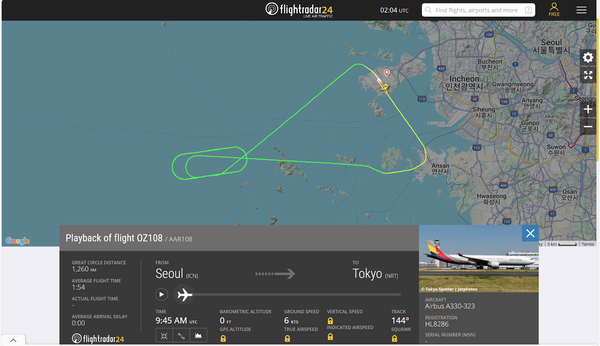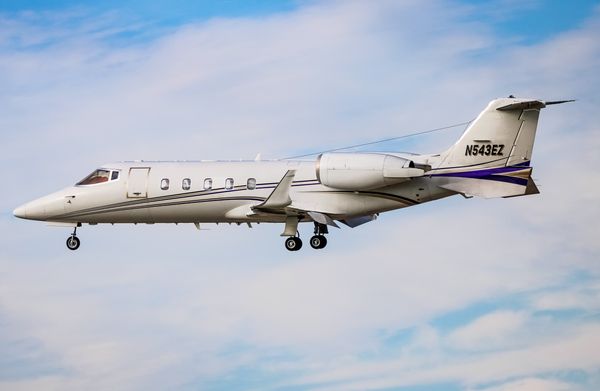A federal Judge blocked the acquisition of Spirit Airlines by JetBlue, a merger that would have produced the fifth-largest airline in the United States. The ruling by District Judge William Young from Boston cited antitrust laws, saying the merger "does violence to the core principle of antitrust law: to protect the United States' markets -- and its market participants -- from anticompetitive harm."

"A post-merger, combined firm of JetBlue and Spirit would likely place stronger competitive pressure on the larger airlines in the country," Young wrote. "At the same time, however, the consumers that rely on Spirit's unique, low-price model would likely be harmed."
The Department of Justice added that the merger would "extinguish a vital source of low-cost competitive disruption along more than 375 routes," resulting in nearly $1 billion of customer harm.

In February of 2022, Frontier Airlines announced its plan to acquire Spirit Airlines in a deal valued at over $2.9 billion. A few months later, JetBlue Airlines outbid Frontier in a "Hostile Takeover," presenting a figure closer to $3.8 billion. After this decision, Spirit Airlines shares dropped nearly 61 percent, with JetBlue shares plunging 5 percent. The carriers are still able to appeal this decision.
What Now?
With the proposed merger being struck down by the Department of Justice, JetBlue and Spirit will remain as separate entities. Many were skeptical of the merger as it would see a combination of two very different low-cost airlines.
JetBlue has earned a reputation as one of the world's leading low-cost airlines. A concept deemed "The JetBlue Effect" relates to how the airline's combination of low fares and unique customer service contributes to a decrease in overall fares.
JetBlue's official fact sheet regarding this phenomenon illustrates an example of ticket prices between New York (JFK) and San Antonio, TX (SAT). After JetBlue entered this market with its service, fares plunged from $164 to $119 one-way, a decrease of 27%.

An MIT study found the "JetBlue Effect" to be even more effective than that of ultra-low-cost airlines like Spirit. Three times more effective.
It was found that JetBlue triggers significantly greater fare decreases upon its entry into a market than the ULCCs. JetBlue's entry into a specific market prompted legacy airlines (American, Delta, and United) to decrease fares by up to 16%. Similarly, Spirit Airlines' entry into another market only prompted a 6% decrease from legacy airlines.
JetBlue's acquisition of Spirit Airlines could have strengthened the effectiveness of the "JetBlue Effect". However, the Justice Department argued that the merger would result in higher fares among other issues - contrary to what the "JetBlue Effect" causes.
JetBlue argued that the Spirit acquisition would create a new, stronger competitor to the larger U.S. airlines and, as such, work to bring down fares as opposed to increasing them.
Comments (0)
Add Your Comment
SHARE
TAGS
NEWS Spirit Airlines JetBlue Finance Mergers and Acquisitions Government Politics MergerRECENTLY PUBLISHED
 Tokyo-Bound Asiana Flight Experiences Engine Failure
An Asiana Airlines flight bound for Tokyo experienced an engine failure, prompting its return to Incheon International Airport.
NEWS
READ MORE »
Tokyo-Bound Asiana Flight Experiences Engine Failure
An Asiana Airlines flight bound for Tokyo experienced an engine failure, prompting its return to Incheon International Airport.
NEWS
READ MORE »
 Learjet Owned By Vince Neil Crashes Into Gulfstream Jet, 1 Fatality Confirmed
On February 10th, around 14:30 local time, a Learjet private jet aircraft crashed into another private jet after landing at Scottsdale Airport (SCF) in Arizona.
NEWS
READ MORE »
Learjet Owned By Vince Neil Crashes Into Gulfstream Jet, 1 Fatality Confirmed
On February 10th, around 14:30 local time, a Learjet private jet aircraft crashed into another private jet after landing at Scottsdale Airport (SCF) in Arizona.
NEWS
READ MORE »
 Seattle Plane Strike 2025: Japan Airlines and Delta Collision Raises Safety Concerns
Seattle-Tacoma International Airport saw a concerning incident on Wednesday morning when a Japan Airlines (JAL) plane clipped a parked Delta Air Lines jet while taxiing. Thankfully, no one was injured, but passengers described the collision as a frightening experience.
NEWS
READ MORE »
Seattle Plane Strike 2025: Japan Airlines and Delta Collision Raises Safety Concerns
Seattle-Tacoma International Airport saw a concerning incident on Wednesday morning when a Japan Airlines (JAL) plane clipped a parked Delta Air Lines jet while taxiing. Thankfully, no one was injured, but passengers described the collision as a frightening experience.
NEWS
READ MORE »



